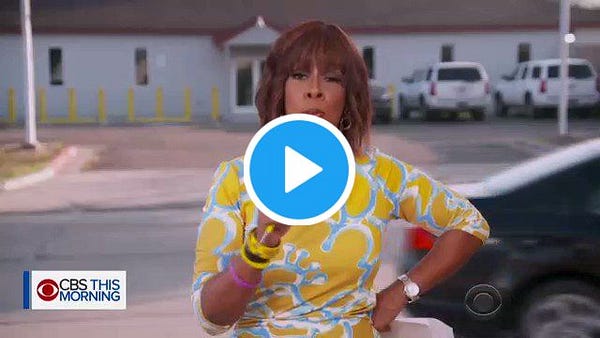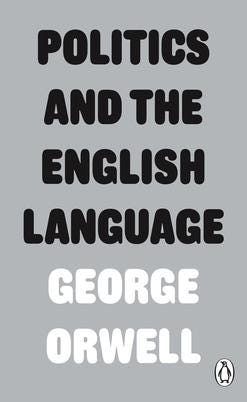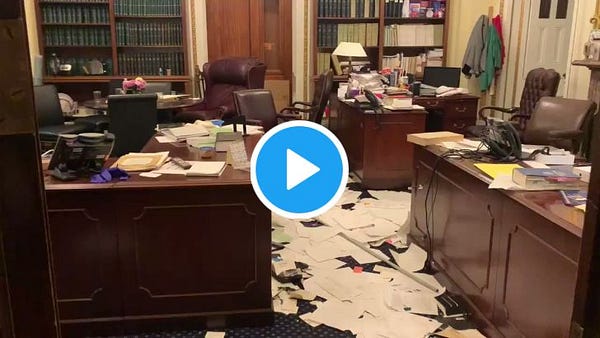Bad Language
Constructing worlds of lies and violence
On my phone's notes app, I have a list hastily titled "bad language." Like the rest of my notes, this one is filled with nonsensical phrases typed on the go without much context. But unlike the other slippery ideas jotted down in cryptic notes on this app, I know exactly what the words on this list mean when I revisit them— and why I wanted to document them in the first place.
"Outercourse" is one of these words. I added it to the list when Brock Turner's lawyer used it to describe his client's sexual assault of an unconscious woman named Chanel Miller during an appeal hearing in 2018. What a strange and perfectly neutral word choice, I thought, to describe a man convicted of attempted rape.
"Government guest houses" is another phrase on the list. I added it in 2019 after reading an article in which an Indian state official used the term to refer to the refugee housing meant for stateless Muslim minorities under the Hindu nationalist government. It reminded me of the elastic words plucked by the Trump administration to distract from the reality that ICE agents were separating infants from their immigrant parents and detaining them in cages around this same time.


I started the bad language list after reading a booklet written by George Orwell called, "Politics and the English Language," where Orwell draws a connection between the misuse of language and political tyranny. Bad writing, Orwell thought, was a symptom of unclear thinking. He opposed any linguistic devices that were pre-formed, like clichés or overused metaphors or clinical jargon. These were containers for prepackaged thoughts that didn't require the writer to be an active participant in the process of meaning-making. For Orwell, this problem wasn't just an issue of intellectual laziness. An epidemic of bad language could power authoritarian governments, sanction state violence, and numb a population to the acute suffering of the oppressed. He writes:
“Defenceless villages are bombarded from the air, the inhabitants driven out into the countryside, the cattle machine-gunned, the huts set on fire with incendiary bullets: this is called pacification. Millions of peasants are robbed of their farms and sent trudging along the roads with no more than they can carry: this is called transfer of population or rectification of frontiers. People are imprisoned for years without trial, or shot in the back of the neck or sent to die of scurvy in Arctic lumber camps: this is called elimination of unreliable elements. Such phraseology is needed if one wants to name things without calling up mental pictures of them.”
The images of violent Trump supporters storming the Capitol today provoked shock and dismay across the political spectrum. But the language used by leaders in each faction rendered the shock unequal in its degrees of political usefulness. Ivanka Trump tweeted a now-deleted message calling the people waving Confederate flags on government property “patriots.” In his rebuke of today's insurrection on the Senate floor, Lindsey Graham called Trump “a consequential president,” with a “uniquely bad idea to delay this election” which, honestly, is as stupid as it is spineless.
There was intellectual laziness: Fox News commentator Tomi Lahren predictably compared the MAGA militia to Black Lives Matter protesters this summer. But defacing Chase Banks and Targets is not the same as breaking into a government building and seizing the democratic processes within it. And fighting for the right to stay alive within a system of police brutality is not the same as enforcing the will of a lying, unrestrained dictator to undermine the will of the electorate.
This moral decay is what perpetuates Trump's system of falsehoods and what jolts the levers of oppression to click into gear. The police mostly escorted Trump's mob out of the Capitol in jagged contrast to the ornamental shows of force against BLM protesters, despite the felonies laid bare in those white marble halls. Terms like "patriot" and "protester" veiled the condoning of domestic terrorism within the highest rungs of power. And the perpetrators of this violence, who were mostly white men, will likely continue to be described in bad language: the"misunderstood," "economically anxious" "silent majority."
For me, the problem isn't in extending attempts at empathy to people who have done terrible things. I don’t know that anyone is beyond understanding. But there's a force of history that's invoked each time a phrase or a word is applied in the same way to the same group of people again and again and again. Each time the qualifier "rural working class" is used to excuse racist behavior, an excuse for violence materializes, but it’s one that’s only available to white people. Despite the fact that nonwhite and immigrant people make up a vast proportion of the rural working class, these descriptors almost never serve them in the same way.
At around 3:30am Eastern Time, when lawmakers finally completed the electoral count to certify Biden’s win, Senate Chaplain Barry Black delivered a closing prayer to a beleaguered Congress: “These tragedies have reminded us that words matter, and that the power of life and death is in the tongue. We have been warned that eternal vigilance continues to be freedom's price.”
Maybe this is the last gasp of Trumps's official hold on power. But the tyranny he's unleashed on the basic mechanics meaning, his thuggery against a coherent realm of understanding, and his looting of any appeals to American value will be much, much harder to impeach. We should use our words well.
🌙 —
Meanwhile, please enjoy this perfect use of incisive political language, even by Orwellian standards — the only bookmark of my week:








Great piece - thanks for this!!
Excellent piece: provocative, to be sure! And thanks for the Orwell reminder!